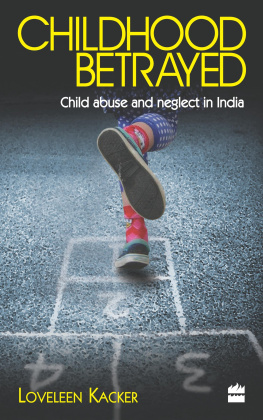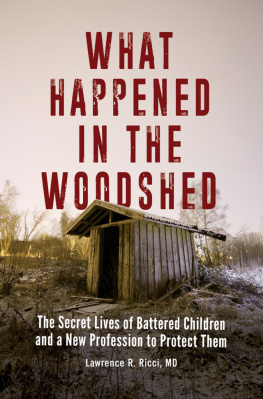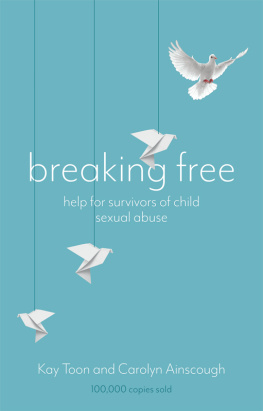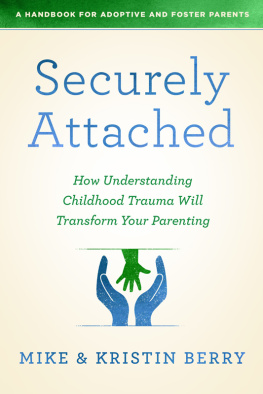To my mother, Yolanda, the woman who led the way for me to become all I could be.

65 Bleecker Street
New York, NY 10012
Copyright 2017 by Arlene Drake
All rights reserved, including the right to reproduce this book or portions thereof in any form whatsoever. For information, address Regan Arts Subsidiary Rights Department, 65 Bleecker Street, New York, NY 10012.
First Regan Arts hardcover edition, March 2017
Library of Congress Control Number: 2016955003
ISBN 978-1-942872-81-8
ISBN 978-1-9428-7282-5 (eBook)
No one other than the author is identified by his or her real name in this book. Physical features and other potentially identifying characteristics also have been changed in many instances, and some characters and events are composites.
Interior design by Nancy Singer
Cover design by Richard Ljoenes
CONTENTS
INTRODUCTION
Imagine meeting a small child whos five or six. The little one cautiously approaches you and whispers, Im so scared. My mom has been hurting me, then turns around and gingerly lifts the back of a stained T-shirt. You immediately see the marks and bruises.
What do you do?
I cant think of anyone who wouldnt rush to comfort this little one, keep the child from danger, and find out what the hell is going on at home. Its obvious the child is helpless, in trouble, and needs protection. Parents or not, we instinctively know what to do: drop everything and take care of the child.
But what if that child is you ?
Im a psychotherapist specializing in trauma recovery, and thats the question I use to open the door to healing for adults whose lives have been damaged by the abuse they suffered as children. Every adult who was beaten, neglected, insulted, belittled, sexually assaulted, or otherwise abused in childhood carries the trauma inside. The traumatized child part of the self is vividly alive. Its experiences leave a lifelong imprint on both body and mind. And the most effective way Ive found to recover from the effects abuse has left on your life is to work directly with the hurt child inside you.
You probably know, or strongly suspect, that something awful happened to you when you were small. No one lines up to see a person who specializes in childhood abuse and traumaor picks up a book like thisunless theyve run out of other options, other therapies, other explanations for why their lives are so stuck and they still feel so bad.
This book is for you if you know or suspect you were abusedphysically, sexually, or emotionallyor neglected as a child. Its also for you if youve struggled with depression, anger, or anxiety and never gotten to its root. You might not necessarily label your childhood abusive, but you might describe life with your parents as difficult or crazy or fucked up and think it might be time to take another look at what went onbecause every other explanation for the way you feel now has come up short.
Youre probably not sure going back into it will help. Most people who were abused in some way as children have grown up trying to persuade themselves that the pain they experienced then is something most adults should have outgrown by now.
So they put the past in perspective. Yes, they admit, things were tough when they were kids. Yes, even brutal at times. But that was a long time ago, and they tell themselves it makes sense to focus on the present not get bogged down in things that cant be changed. My parents did the best they could under the circumstances, and what good could it possibly do to demonize them or dwell on what happened? clients tell me. Maybe, all things considered, it wasnt that bad. Most people want to lose any sense that they were, or are, victims. They want to find some peace in forgiveness, and move on.
Its a very adult perspective, and it may help you cope with a nightmare of a past.
But it wont help you heal.
If you want to be more than a survivor, if you want to have the peaceful, centered life thats always been just out of reach, youll have to stop justifying what happened to you. Youll need to look through the eyes of the lost, hurt, heartbroken kid whos been pushed aside each time youve said, It wasnt so bad.
Most people who come to see me nod knowingly when I say that. Yet the abused kid they were is the last thing most smart, world-weary survivors want to think about. The whole idea of considering the experiences and needs of that injured figure from the past seems useless at best. What would be the point? Why go back to revisit some inner child when the outer adult is the one who needs help right now?
But its the child inside who holds the elusive key to healing. And once my clients see a frightened little boy or girla child with their own faceasking for help, the image is hard to shake.
And so it is with you. Do you save the child or dont you? Can you really look into the eyes of the terrified or overwhelmed kid in the mirror and say, Dont make a big deal of it. The people who beat you up or raped you or made you feel like you were nothing were doing the best they could?
Do you tell the child inside you to shut up while you explain that the abusers were probably addicts or under pressure or abuse victims themselves? Or do you step to the childs defense? Faced with that choice, I believe you, like most people, will embrace the child within.
Ill help you do that, with a process I have used for more than three decades to help hundreds of people work with both their hearts and their heads to heal the deepest pain in their lives. Well wade into the challenge of listening to and taking care of the hurt child inside, and step-by-step, Ill show you how to heal the wounds of a miserable childhood by coming to that child as a compassionate adult with the heart and mind and guts to rescue it, and show it how to grow up. Its the most challengingand life-changingwork you will ever do.
Finding the courage to care for the child and confront the childs truththats the essence of the process, and why I think of what were doing as carefrontation, a blending of those two vital tasks.
Carefrontation is your guide to breaking free from the lies, secrets, and shame of the past and reclaiming your genuine self. Once you finally feel the truth of what happened to you and see the depth and breadth of how it continues to affect you, you can heal. You can thrive in the life you were meant to have.
Much of what well do together is designed to get at the emotional truth and repercussions of the abuse, feelings that might be buried inside you. But we wont stop there. Ill also show you powerful ways to repair your damaged connection to the self that stumbled into adulthood without a loving guide or a map. In doing that, youll learn what your parents couldnt teach you: an invaluable set of skills and practices that will give you the resources to live as a healthy, happy adult, using your own buried wisdom to guide you. With courage, determination, and the clear path Ill lay out for you, you can finally release the suffering and burdens of a lifetime.
WHY FOCUS ON THE CHILD?
You may be skeptical about the inner child, which sounds to many people like a meaningless clich. So Id like to explain how this work came about, and give you a look at its most powerful elements. Before we get into the work itself, Ill also tell you a bit about the neuroscience that may help explain why its so effective.
The carefrontation techniques Ill guide you through are the result of more than thirty years of clinical practice with thousands of adults who were abused as children. When I began my career, there was little awareness of the epidemic of abuse perpetrated against children by their caretakers and other people in their lives. The government had scarcely begun tracking child-abuse cases, and there was no public discussion of incest. The adults I saw early on had grown up in a time when children were seen almost as their parents property, subject to the parents rages, neglect, or sexual abuse, because what happened behind closed doors was often considered to be family business, not a matter for outside concern or intervention.
Next page





